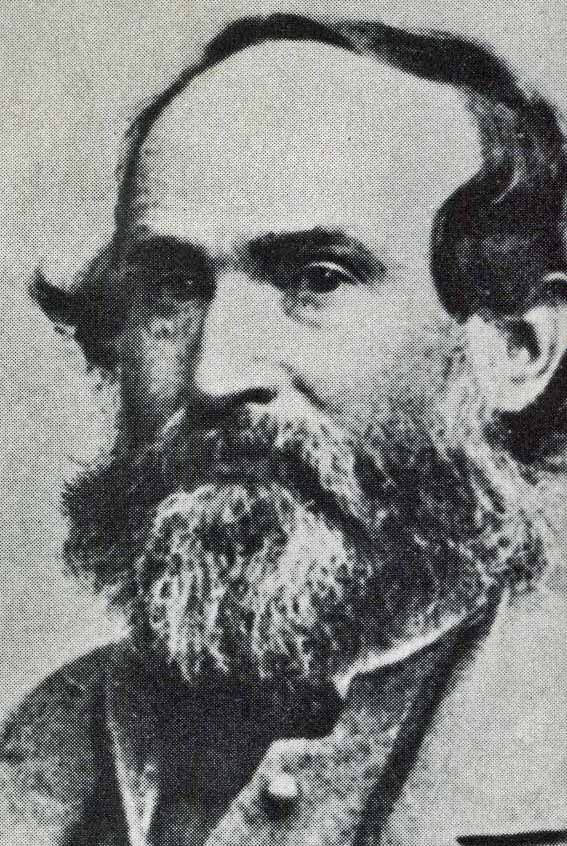Background
Early was born in the Red Valley section of Franklin County, Virginia, third of ten children of Ruth (née Hairston) and Joab Early.


General lawyer officer commander
Early was born in the Red Valley section of Franklin County, Virginia, third of ten children of Ruth (née Hairston) and Joab Early.
He was graduated from West Point in 1837, served during 1837-1838 in the second Seminole War in Florida, and then resigned the army in 1838 to practice law in his home county.
Early served in the Second Seminole War in Florida (1835–42) and the Mexican-American War (1846–48), although he did not see combat in Mexico . A member of the Virginia Convention of 1861 (Secession Convention) in the period leading up to the Civil War, he strongly opposed secession. However, when Virginia decided to withdraw from the Union in 1861, he felt obliged to conform to the action of his state. Early joined the Confederate army after Virginia seceded in April 1861, and he served as a colonel commanding the 24th Virginia Infantry Regiment. In June he took command of the Army of the Potomac’s 6th Brigade. He fought courageously and well at the First Battle of Bull Run (July 1861), near Manassas, Virginia, , after which he was promoted to brigadier general. He took part in many engagements after that, such as the Battle of Antietam (September 1862), the Virginia campaigns of 1862–63 (including the Battles of Fredericksburg and Chancellorsville), the Battle of Gettysburg (July 1863), and the Wilderness (Overland) Campaign (May–June 1864). He was promoted to major general on January 17, 1863, and to lieutenant general on May 31, 1864.
The climax of Early’s career came in June and July 1864 after Gen. Robert E. Lee placed him in command of a corps of Southern troops (the Army of the Valley District) in Richmond, Virginia, with orders to drive Union forces out of the strategic Shenandoah Valley. Early moved his II Corps troops out of the defenses of Richmond on June 13. Five days later, after a short battle at Lynchburg, Virginia, Early’s men drove Union forces under Gen. David Hunter out of the state. Early then moved north through the valley unopposed. He crossed the Potomac River on July 5 and defeated a small Union force under the command of Gen. Lewis Wallace at the Battle of Monocacy (July 9). Two days later he led 8, 000 troops through Silver Spring, Maryland, to the gates of Fort Stevens in the upper northwest portion of Washington, D. C. Two days of intermittent skirmishing between Early’s forces and the defenders of Washington took place on July 11 and 12. Early withdrew to Virginia on July 13.
Northern pride was wounded by Early’s move into Maryland and against Washington, and Gen. Ulysses S. Grant dispatched Gen. Philip Sheridan to clear the valley once and for all. Bowing to numerically superior forces, Early suffered three decisive defeats at Sheridan’s hands between September 19 and October 9—at Winchester, Fishers Hill, and Tom’s Brook—after which the valley was laid waste. Early then carried out a well-planned attack at Cedar Creek on October 19 but was forced to retreat up the valley to Waynesboro, Virginia, where he and his troops spent the winter. After the Battle of Waynesboro (March 2, 1865)—which resulted in a defeat for the Confederates that ended their resistance in that area and opened the way to Union capture of Richmond—Lee relieved Early of command.
After Lee’s surrender (April 1865), Early went to Texas, hoping to keep the Confederate cause alive. When that did not happen, he escaped to Mexico and began work on his memoirs. In August 1866, he moved to Toronto, Canada, where he published A Memoir of the Last Years of the War of Independence in the Confederate States of America (1866), the first memoir by a major participant in the Civil War. In 1869 Early settled in Lynchburg, Virginia, where he practiced law and wrote historical essays. As the first president of the Southern Historical Society, Early was one of the prime architects of the Lost Cause theory, which held that the Confederacy’s cause had been just and which placed the blame for the South’s Civil War defeat on the North’s superiority in manpower, funds, and equipment. Early died at age 77 after a fall down a flight of stairs in Lynchburg.
The boat at White's Ferry, the only ferry still operating on the Potomac River, is named General Jubal A. Early.
A major thoroughfare in Winchester, Virginia is named "Jubal Early Drive" in his honor.
Virginia Route 116 from Roanoke City to Virginia Route 122 in Franklin County is named after him.
There is a road in Potomac, Maryland called "Jubal Early Court".
His childhood home, the Jubal A. Early House, was listed on the National Register of Historic Places in 1997.
Fort Early and Jubal Early Monument can be found in Lynchburg, Virginia.
